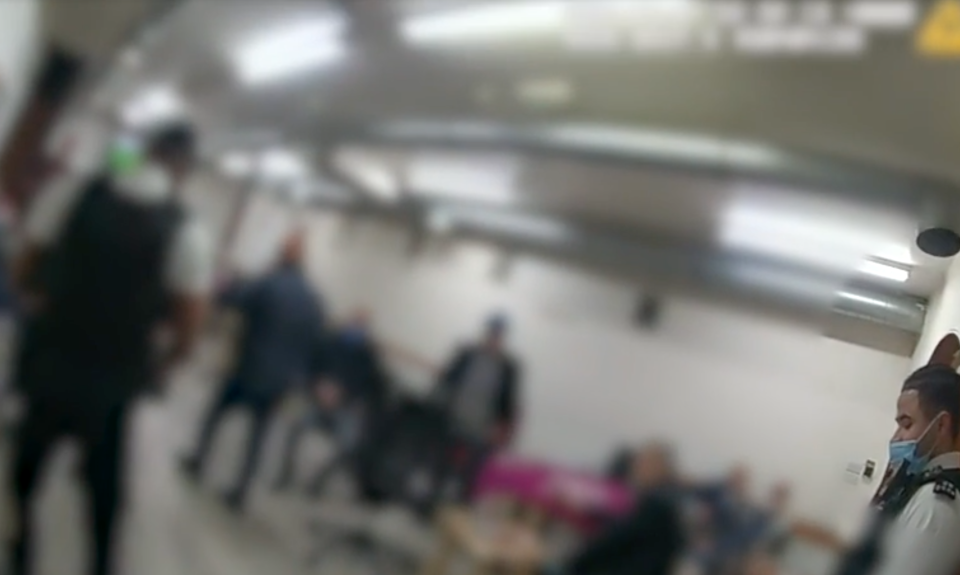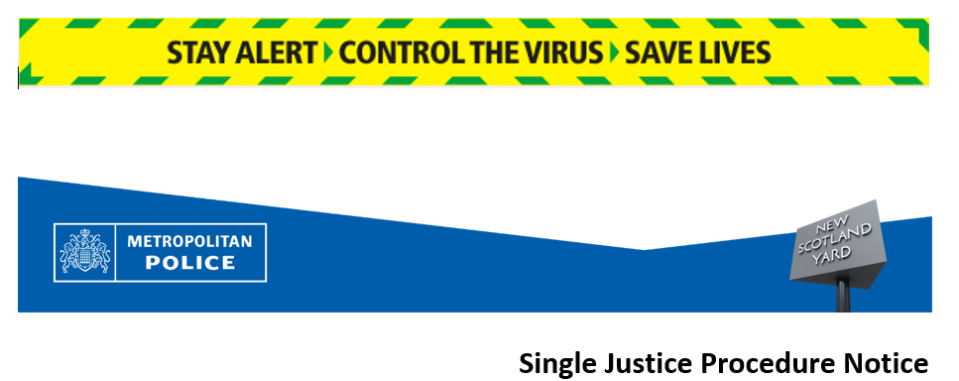Lockdown rule-breakers are fined £3.6m in London but hand over just £500,000

Police have handed out £3.6m in Covid fines, but only a fraction have been paid
(PA Archive)Just a fraction of £3.6 million in fines handed out to London’s Covid-19 rule breakers were actually paid in the first year of the pandemic, the Evening Standard can reveal.
Police forces across the UK have issued tens of thousands of fixed penalty notices (FPNs) to lockdown breakers, punishing those ignoring the ‘stay at home’ message, throwing house parties, and refusing to wear a mask.
Protest organisers were told they face £10,000 penalties for flouting the rules, as Parliament passed a string of laws aimed at containing the coronavirus spread.
But figures obtained by the Evening Standard show that less than 15 per cent of FPNs issued by the Met Police in the last year for Covid-19 regulation breaches have actually been paid.
A total of 14,174 fines were dished out, adding up to £3,625,440, but just £538,100 of the bill was settled between the start of the pandemic and mid-March this year.
Suspected rule-breakers are given 28 days to pay-up after receiving a financial penalty notice, and could face court action if they fail to settle the bill or decide to contest the offence.
With thousands of fines being issued but only low levels being paid, it raises the prospect of a wave of prosecutions through an already-overstretched justice system.

HM Courts and Tribunal Service revealed this month that within days of the pandemic starting, it began adapting the Single Justice Procedure (SJP) to allow Covid-19 offences to be dealt with in closed-door administrative court sessions.
National Police Chiefs’ Council (NPCC) guidance - adopted by the Met Police - says SJP is being used to deal with unpaid fines to “resolve the issue quicker and at a lower cost”.
“Once a fine is contested or unpaid the case will proceed to court”, it said. “Police forces review all of these cases to further ensure only those cases that meet the evidential and public interest test are heard in court.”
Scotland Yard has issued press releases throughout the last year, announcing FPNs handed out to Covid rule breakers. In the last few months the force said organisers of house parties in Mayfair and Kensington, a boat party in Hackney, and a gathering at a Croydon barber shop had all been “reported for consideration of a £10,000 fixed penalty notice”.

When asked to say how many of its fines had actually been paid the Met refused, insisting that the information was already “scheduled for release in the near future”.
But the Standard obtained the figures through a Freedom of Information request to the NPCC and ACRO, the Criminal Records Office which administers FPNs.
When it emerged in September last year that the majority of Covid-19 fines were not being paid, human rights barristers Kirsty Brimelow QC said it was “predictable” that people resentful of new police powers, unable to afford the penalty, or believing they had done nothing wrong would not engage with the system.
“It is questionable as to how effective issuing fines is to preventing the spread of the virus, she added. “Rather they are adding stress and hardship to people who already are suffering.”
The new data shows that just £5,430 of the £56,500-worth of FPNs handed out by City of London Police in the last year have so far been paid.

A spokesperson for City of London Police said a “significant proportion” of its fines have been processed since January this year, and with up to four months for the notice to be issued and dealt with it is “too early to determine what the outcomes of those fines are”.
The data also reveals that British Transport Police, which has been marshalling mask-wearing on public transport, has issued £163,960 of FPNs nationally, but just 15 per cent - worth £24,490 - have been paid.
Read More
Denmark may allow people to choose the AstraZeneca Covid-19 vaccine
Covid-19 infection levels across UK lowest since autumn
Cases of ‘double mutation’ Indian Covid variant found in London
5 ways to update your home this spring – with help from TikTok

 Yahoo Sport
Yahoo Sport 





































